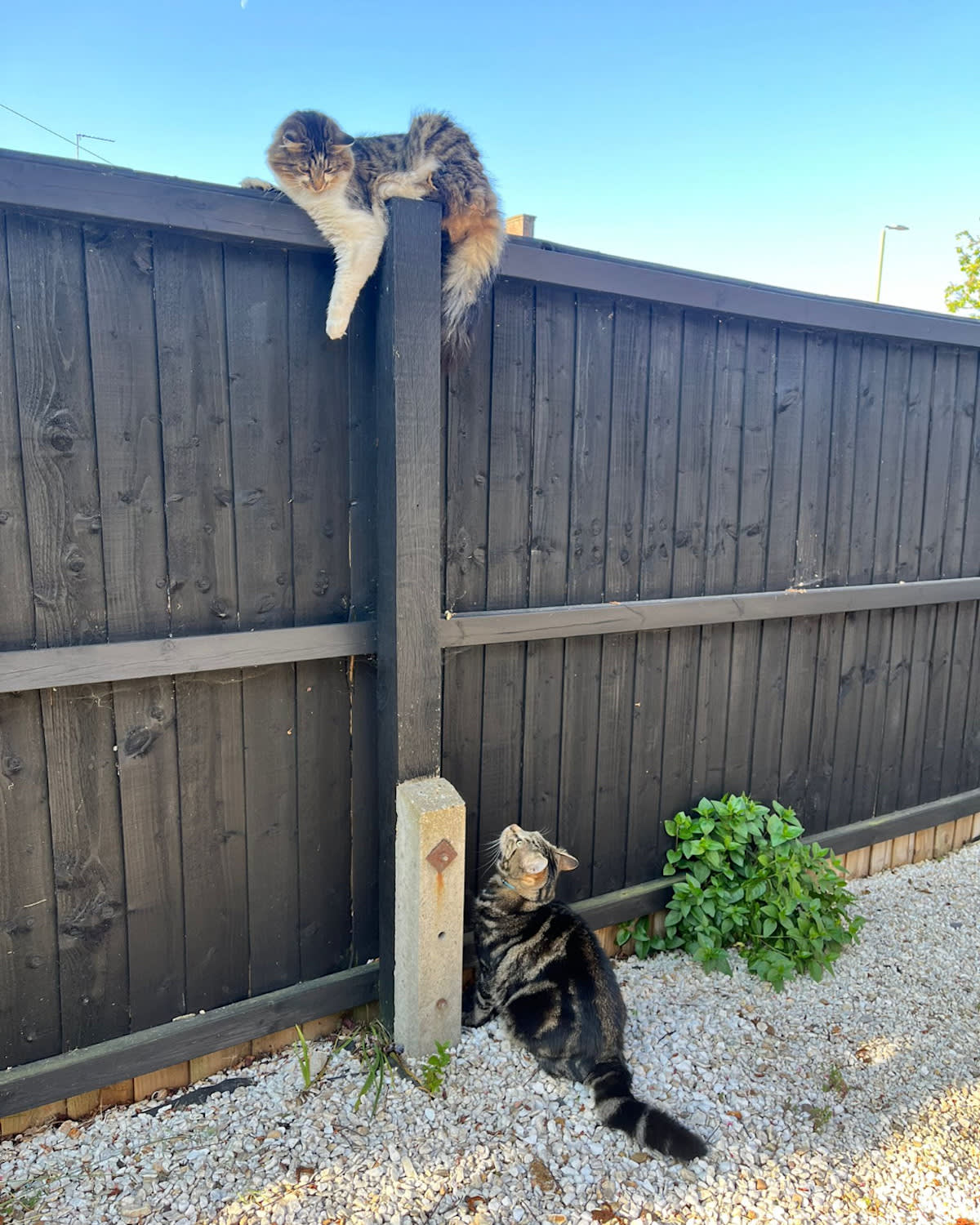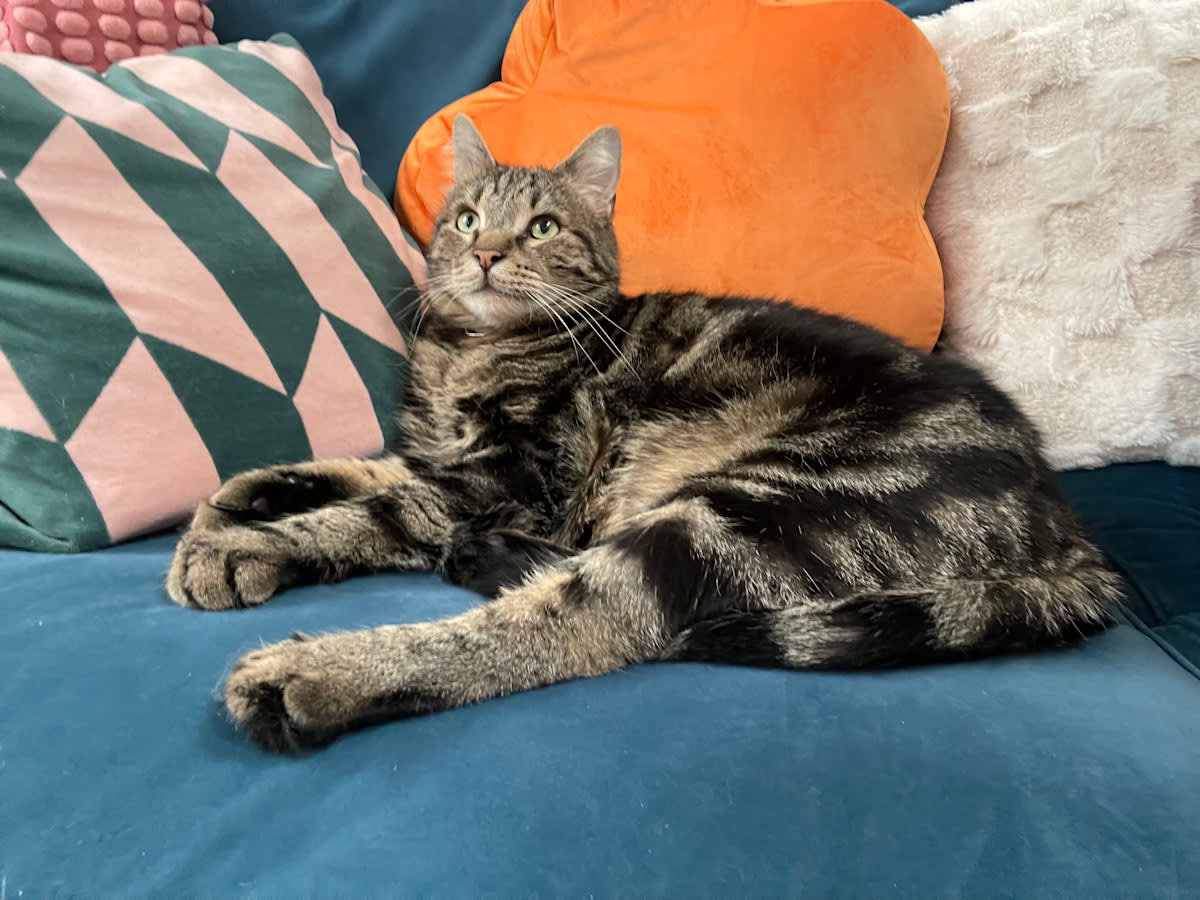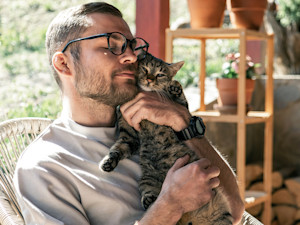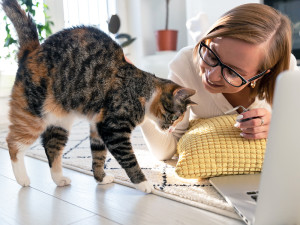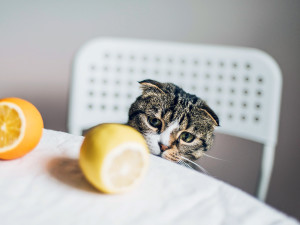Will Your Cat Remember You if You Leave?
And more importantly, will they miss you?
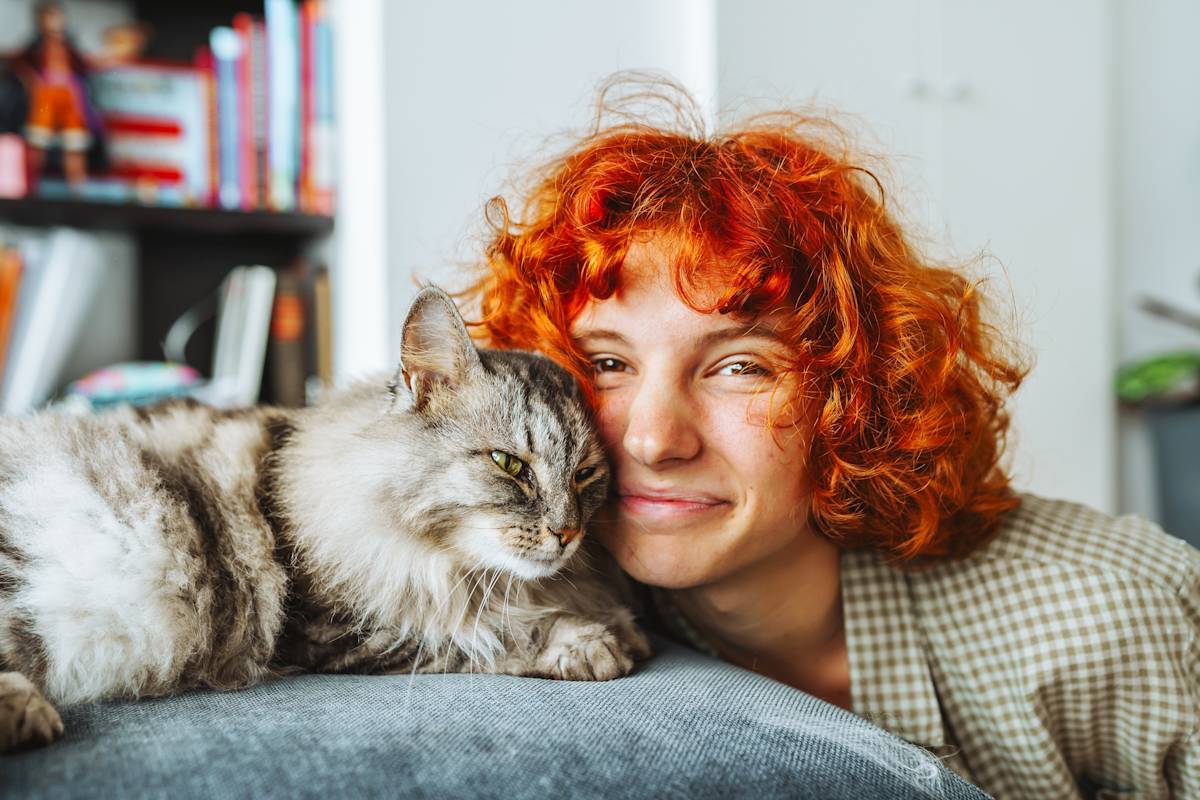
Share Article
When life (and a big move) took me out of the country for six months, my cat Kobe went to stay with my friends. It was incredibly hard parting ways with him but I knew he’d be in safe hands and ultimately get a little holiday of his own in their lovely house, complete with a garden for maximum bird-watching enjoyment. (He even ended up having a holiday romance with a local cat who would come into the garden and play with him.)
As my return to the UK neared, I began to wonder what it would be like when he saw me again. Was he missing me? Would he remember me? Would he remember me but resent me for abandoning him? How complex would his thoughts actually be on the matter?
If, like me, your algorithms like to serve you tear-jerking, heartwarming animal videos then you’ll have seen those compilations of dogs being reunited with their pet parentsopens in new tab after they’ve been separated. And while I love watching them and crying at my phone, one thing I knew for certain is it was never going to be like that with a cat – I assumed Kobe would be indifferent at best and treat me like a total stranger at worst. I tried to tell myself that his reaction didn’t matter, as long as we were back together and he could settle back into my flat without too much stress or anxiety it would be a win.
But Kobe surprised me…
The ‘non-reunion’ reunion
When I arrived to collect him, the reunion was stressful and practical in equal measure. Firstly, he’s no fool. My friends had already got the cat carrier out and Kobe knows what that means. So when I arrived his main goal was to try and evade capture as skilfully as possible rather than to acknowledge my existence. Thankfully, between the three of us we managed to get him in without too much of a struggle. He meowed the whole way home in the car but I like to think this was a good opportunity for him to start recognising my scent again and the sound of my voice.
Home sweet home
After a brief time cowering under the sofa, Kobe emerged and almost immediately came straight over to me with no hesitation and proceeded to engage in our usual stroking ritual – ie, I sit on the floor and he rubs up against me repeatedly and then flops in front of me for head scratches and purrs excessively.
He’s not a snuggly or cuddly cat by nature, and this is not something he would willingly do with strangers. I later found out that he didn’t really do that with my friends who were looking after him either, he had more of a ‘I’m happy to be near you and let you touch me but that’s as far it’s going to go’ relationship with them. This was definitely the type of interaction that was reserved for just him and I. I am not ashamed to admit I started crying, saying to him over and over, “You remember me!”
It was so much more than I could have hoped for already but he continued to surprise me. He slept on the end of my bed again immediately (in normal circumstances this is not an everyday occurrence); he reclaimed his favourite chilling spot on the dining room table; he remembered the sound of the fridge opening (because once, two years ago, he was given a tiny piece of chicken from the fridge) and would race downstairs every time he heard it – it was like no time had passed and nothing had changed. I was so happy.
What science says about cat memory
This all got me thinking, how much do cats actually remember when it comes to people and environments? According to a studyopens in new tab, cats have a great long-term memory: “Cats possess a complex memory system that allows them to recall people, places, and experiences for extended periods, making them far more perceptive than their aloof demeanors might suggest.” In fact, in experimental conditions, it has been shown that cats can retain and recall information for as long as 10 years. “Established connection and the shared positive interactions are deeply ingrained in their memory, and the absence of these experiences is often quite noticeable to them.”
This means there’s a chance Kobe may actually have been actively missing me while I was gone, rather than it being an ‘out of sight, out of mind‘ situation. Sob.
Sensory memory
Cats don’t rely on memory in the same way we do – it’s not about recalling your face in HD. They form multi-sensory memory profiles.
Voice: cats can distinguish their human’s voice – even if they choose not to respond. One study from Japan in 2013opens in new tab suggests cats can recognise our individual voices. Researchers found that 15 of the 20 cats they tested showed a “significant” response when played the sound of their pet parents’s voice instead of a stranger’s.
“The cats were much more likely to turn their head, turn their ears towards the sound, than if a stranger was calling their voice,” explains Dr Wanda McCormick, head of the animal and agriculture department at Hartpury University. “It was definitely the voice and not the way it was being presented.”To check the cats were responding to their pet parents and not just the sound of their name, the strangers were asked to mimic the way the pet parents said it. The evidence suggests cats actually differentiate between vocal tones and how their name is said, explains Daniel Warren-Cummings, central behaviour officer for Cats Protection.
Scent: with up to 200 million scent receptors, their nose is a memory vault. Smells can trigger memories even long after their human is gone. For cats, olfaction is actually much more important than vision and they use this most for social interactions. If you think about the evolution of the species, their closest ancestors are a solitary species that does not have a lot of social interaction. And so using olfaction to communicate is a really good way of sending messages to other cats without face-to-face communication.
Routine: cats are also a stickler for routineopens in new tab and learning to associate different sounds, smells and times with certain activities. If your cat has ever looked at you with horror and started meowing when their dinner is served five minutes later than usual, you’ll know exactly what good time-keepers they are.
Emotional attachment and recall
Cats aren’t only remembering what and where – they also remember why. A studyopens in new tab showed that 50 cats could remember which bowl contained food even after the cats were removed from the area for 15 minutes. This suggests that they retrieved and utilised information from an incidentally encoded memory from a single experience.
Meanwhile, another study showed secure attachmentopens in new tab to their humans, mirroring behaviours seen in human infants and dogs, such as seeking comfort in unfamiliar situations, showing signs of distress when separated and displaying relaxed, confident behaviour when reunited.
So in answer to all my burning questions – yes, Kobe probably did miss me while I was gone; yes, he was always likely to remember me; yes, he does love me with all of his heart; and yes I promise I will never leave him again!
Okay, perhaps that‘s a little bit of exaggeration. Yes, Kobe did miss me, but what he missed was most likely the routine, the safety and the familiarity that comes along with me as the person that provided him with a secure loving home for so long before I went away.
What’s more, the science backs it all up. From their ability to form long-term memories through scent, sound and routine, to the way they build secure emotional attachments with their humans, cats are far more connected to us than we often give them credit for. Kobe’s quick return to our old routines, his affectionate behaviours towards me, and his total recall of life in our home weren’t just sweet coincidences – they were signs of a meaningful bond rooted in memory, familiarity and emotional connection. It turns out that beneath their cool exteriors, cats really do remember the people who love them – and maybe even miss them just as much.
Resources
Ines, M., Ricci-Bonot, C. and Mills, D.S. (2021). My Cat and Me—A Study of Cat Owner Perceptions of Their Bond and Relationship.opens in new tab Animals, 11(6), p.1601.
Takagi, S., Tsuzuki, M., Chijiiwa, H., Arahori, M., Watanabe, A., Saito, A. and Fujita, K. (2017). Use of incidentally encoded memory from a single experience in catsopens in new tab. Behavioural Processes, 141, pp.267–272.
Team, E. (2025). How much do cats remember? - The Environmental Literacy Councilopens in new tab. [online] The Environmental Literacy Council.
Abdai, J., Uccheddu, S., Gácsi, M. and Miklósi, Á. (2022). Chasing perception in domestic cats and dogsopens in new tab. Animal Cognition, 25(6), pp.1589–1597.
Ro Elfberg
Ro is Kinship UK’s Senior Editor. She has previously written and copy-edited for British Vogue, Glamour and DICE. When she’s not being manipulated into dishing out Dreamies to Kobe the cat, she spends her free time trying to convince her snake, Butters, to wear a tiny hat.
Related articles
![]()
Should You Hug Your Cat?
With consent, of course...
![A woman wearing glasses lying on the floor in front of her Macbook and stroking her cat.]()
Does Your Cat Recognise Your Voice?
Or are they just ignoring you...
![Home cat sitting on a chair with citrus.]()
Everything You Need to Know About Your Cat’s Incredibly Powerful Nose
They have up to 200 million odour receptors that can pick up all the good (and horrible) smells. Learn how to best support their sensitive sniffers

